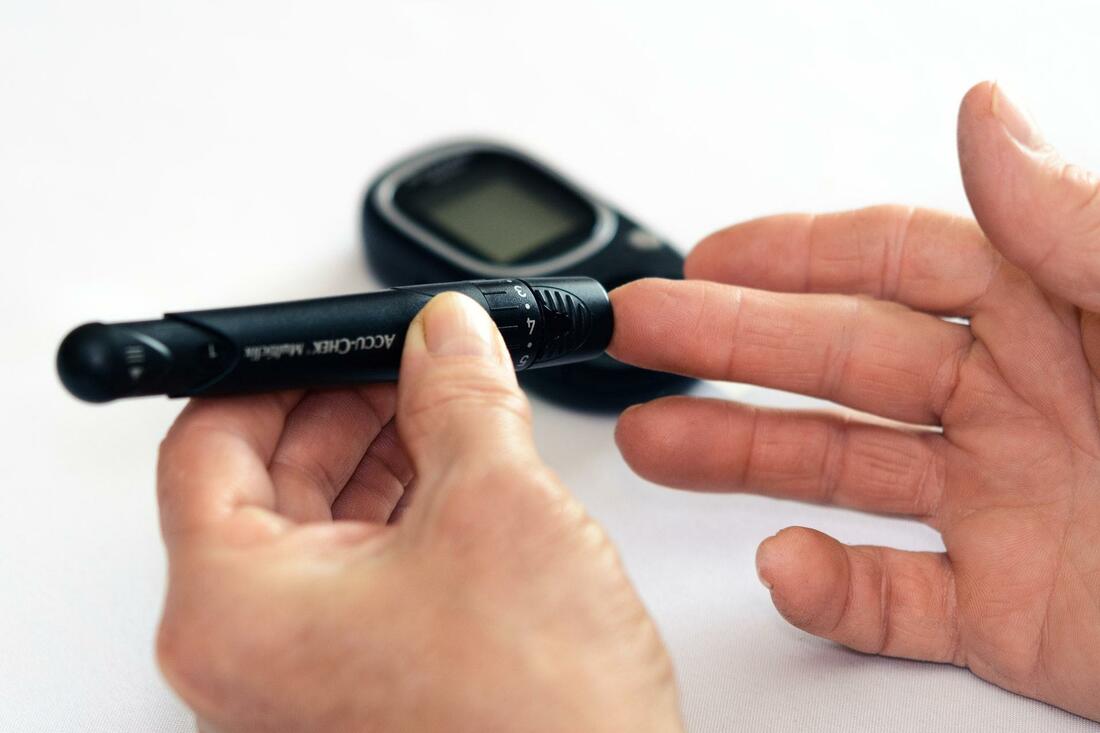|
By Karen Weeks

By Pexels
If you're over the age of 65, there’s a 25 percent chance that you’re living with diagnosed or undiagnosed type 2 diabetes.
Diabetes is a reality for seniors as they age. When the body is insulin deficient or resistant, diabetes can develop. Insulin is important because it transfers glucose to your cells to help them repair, grow, and create energy. Without enough insulin, too much glucose stays in your blood. This is when your blood sugar gets too high and problems occur, such as pancreatic damage and the hardening of blood vessels. Kidney disease, heart disease, stroke, and other serious complications can also arise from high blood sugar and diabetes. Causes and Prevention
Type 2 diabetes — the one that many adults are at risk of developing — has to do with genetics and lifestyle. If you have a family history of type 2 diabetes, then your own risk increases. Weight, exercise, and diet can have an impact on whether you develop this disease. Those who are inactive and eat an unhealthy diet are more likely to become diabetic than those who maintain a healthy weight through proper nutrition and activity.
When you hit your senior years, decades of unhealthy choices and an aging pancreas bring you closer to diabetes. High glucose levels could indicate a prediabetic condition, which means your risk of developing diabetes increases. Finding out if you’re prediabetic can help you make the right changes to prevent a diabetes diagnosis. Treatment and Medicare
A diabetes diagnosis means that you’ll be seeing an endocrinologist, but treatment can get costly without proper insurance. One of the perks of becoming a senior is that you can enroll in Medicare for your healthcare needs. If you paid into it through employment, you automatically qualify when you turn 65.
Medicare can help pay for test strips, glucose monitors, lancets, and insulin. It also covers oral medications such as Metformin. Medicare not only covers the medicine, tests, and supplies, but it also covers your diabetes management program. Your primary care doctor should be able to refer you to the proper program for your specific needs. This program will show you how to eat and drink properly to keep your blood sugar level down. Your doctor also can refer you to fitness classes to keep you active and control your weight. Many privately owned Medicare insurance companies even offer free membership to the YMCA or private gym. The Medicare system can be complicated to navigate, but having diabetes further complicates it. Consumers Advocate is a useful resource that can help you make an informed decision on selecting a private Medicare plan, also known as a Medicare Supplement plan. To search for a supplemental plan that fits your needs, read through the recommendations and find the best ones in your area. Controlling Diabetes
Other than scheduled visits to an endocrinologist and an adherence to your medication plan, maintaining your blood sugar level will help you remain healthy and prevent further complications. The blood sugar level of a diabetic should be 70-130 mg/dL before food and 180 mg/dL after food. You can test your blood sugar anytime with an at-home testing kit like Accu-chek and One Touch.
A healthy diet and exercise program are the best non-medical ways to manage your diabetes. Through your Medicare plan, your doctor can help you come up with a nutritional program so that you’re eating what’s optimal for your body. Diabetes doesn’t need to determine the outcome of your life. With prevention and care, you can take control of your blood sugar and, as a result, your health. Get tested now if you haven’t been diagnosed. What you learn today could save you tomorrow.
0 Comments
Leave a Reply. |
AboutNews updates, tips, and guides on senior care, senior health, stress relief and a host of other caregiving related topics from the professionals at Ella Stewart Care. |


 RSS Feed
RSS Feed
